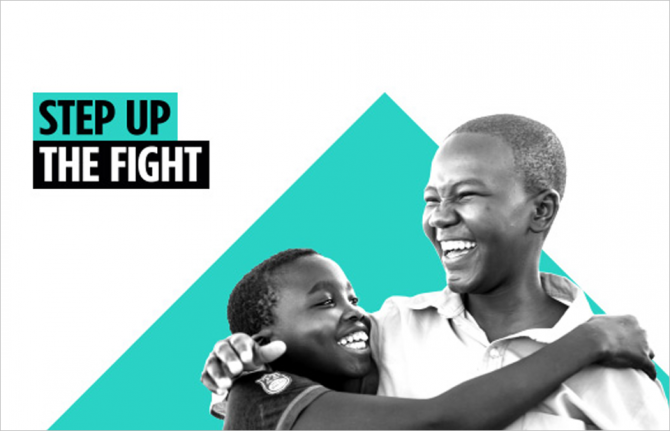

Feature Story
Global Fund presents its Sixth Investment Case in New Delhi
08 February 2019
08 February 2019 08 February 2019The Global Fund to Fight AIDS, Tuberculosis and Malaria (Global Fund) presented its Sixth Replenishment Investment Case to donors and partners at a meeting held in New Delhi, India, on 8 February. The Investment Case calls for US$ 14 billion to be invested over three years to help save 16 million lives through programmes for HIV, tuberculosis and malaria.
The Global Fund estimates that investing today will cut the mortality rate for the three diseases in half and build stronger health systems by 2023. Full funding would enable the Global Fund to continue playing a critical role in the response to HIV, tuberculosis and malaria, accelerating progress towards universal health coverage and achieving the Sustainable Development Goals.
“Only with a fully funded Global Fund to Fight AIDS, Tuberculosis and Malaria can we reach the global targets set for HIV, tuberculosis and malaria,” said Tim Martineau, Deputy Executive Director of UNAIDS, Programme, ai. “UNAIDS is committed to continuing to work with the Global Fund to ensure that it meets its financial targets so that countries can end AIDS as a global health threat and save more lives.”
The Global Fund’s Sixth Replenishment target of US$ 14 billion represents an increase of US$ 1.8 billion, or 15%, more than the US$ 12.2 billion raised during the Fifth Replenishment period.
UNAIDS will continue to strengthen its long-established partnership with the Global Fund to maximize the impact of the investments, accelerate inclusive people-centred responses and end AIDS as public health threat by 2030.
UNAIDS estimates that US$ 26.2 billion will be required for the AIDS response in 2020. In 2017, US$ 21.3 billion was available for the AIDS response in low- and middle-income countries, a shortfall of US$ 5 billion. UNAIDS urges both donors and funding from domestic sources to be scaled up to fill the gaps and end the HIV, tuberculosis and malaria epidemics by 2030 as part of Sustainable Development Goal 3.
Together, UNAIDS and the Global Fund have ensured that millions of people living with HIV have access to treatment and that the people most affected by the epidemic have the health and support services they need.



